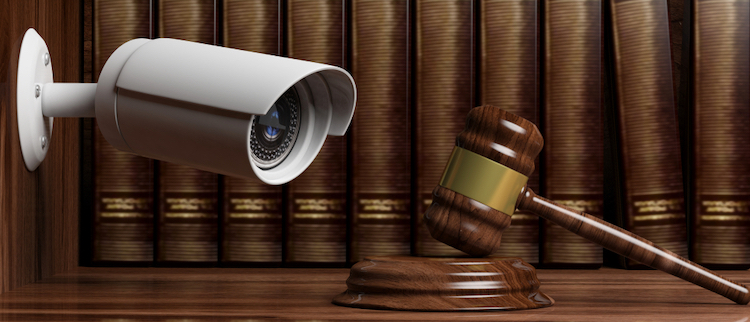SCOTUS nominee says she'd keep an open mind about cameras in the high court

Image from Shutterstock.com.
U.S. Supreme Court nominee Judge Amy Coney Barrett said Wednesday her federal appeals court has allowed video recording of oral arguments, and she would keep an open mind about the issue in the high court.
Barrett spoke in response to questions by Republican Sen. Charles Grassley of Iowa, who said the 7th U.S. Circuit Court of Appeals at Chicago had adopted a process to allow requests for video recordings of oral arguments and public release of the recordings. Grassley asked whether there had been any problems and whether she would keep an open mind about the issue in the Supreme Court.
“I would certainly keep an open mind about allowing cameras in the Supreme Court,” Barrett said.
Democratic Sen. Sheldon Whitehouse of Rhode Island also addressed transparency issues. Whitehouse asked Barrett whether she was aware that the Supreme Court had lower financial disclosure requirements than federal judges on lower courts.
Barrett said she was not aware that the Supreme Court financial disclosure requirements were different.
Whitehouse also said it has become a tradition for groups that file amicus briefs to disclose only those who funded the physical preparation and filing of a brief. If a group gets a million dollars from a donor who tells the group that they would appreciate it if an amicus brief was filed, that doesn’t have to be disclosed, Whitehouse said.
Whitehouse gave some examples: A group called the Internet Accountability Project filed an amicus brief and didn’t disclose that the Oracle Corp. had given it up to $99,000. The brief was filed in a case involving Oracle. Another group, the American Conservative Union, received up to $500,000 from Oracle and filed a brief in the Oracle case.
Whitehouse asked: Isn’t that the kind of thing the parties should know? Barrett said she wasn’t aware of the funding.



